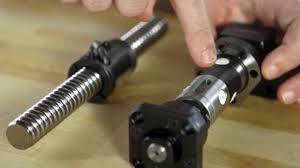Today’s motion automation applications demand effective linear motion transfer systems, like lead screws and ball screws. Though lead screws are usually seen as more cost-effective substitutes for ball screws, deciding on which kind of screw to use could be much more than focusing alone on the cost of each screw. The most distinction is that a ball screw uses ball bearings to eliminate the friction between the nut and screw, whereas lead screws don’t. Lead screws use deeper coiling threads and a conjugation nut that is sometimes made from a compound composite or bronze. The rolling nature of ball screws eliminates the sliding friction related to lead screws. But it still needs maintenance and proper lubrication to avoid damage to the machine. But you do not have to worry because you could take it to the www.superiorballscrewrepair.com/ service to fix it in just days.
Generally speaking, ball screws are the best for applications that need sleek motion, efficiency, accuracy, precision, and prolonged continuous or high-speed movement where lead screws are traditionally appropriate for transfer applications that speed, accuracy, precision, and rigidity don’t seem to be as essential. But ball screws have advantages and disadvantages like needing braking systems and are offered in higher accuracy grades for bigger point accuracy. If you are looking for a screw that requiring less torque and more efficient then a ball screw is the best choice for you. But even when the ball screw runs at cooler temperatures and has lower friction, it will need grease or oil lubrication to maintain and help it works optimally. Ball screws will have higher noise values and need braking mechanisms to eliminate back driving. Offered in rolled and ground sorts, ball screws may be adjusted to increase or decrease preload.
Of course, there are perpetually trade-offs to be created betting on your application. Additionally to materials, assembly style, and accuracy, vital variables to contemplate embody wobble error, noise, maintenance, efficiency, and longevity. In most cases, evaluating the load, accuracy, and lead for your application can most typically answer the question of ball screw vs. lead screw.

